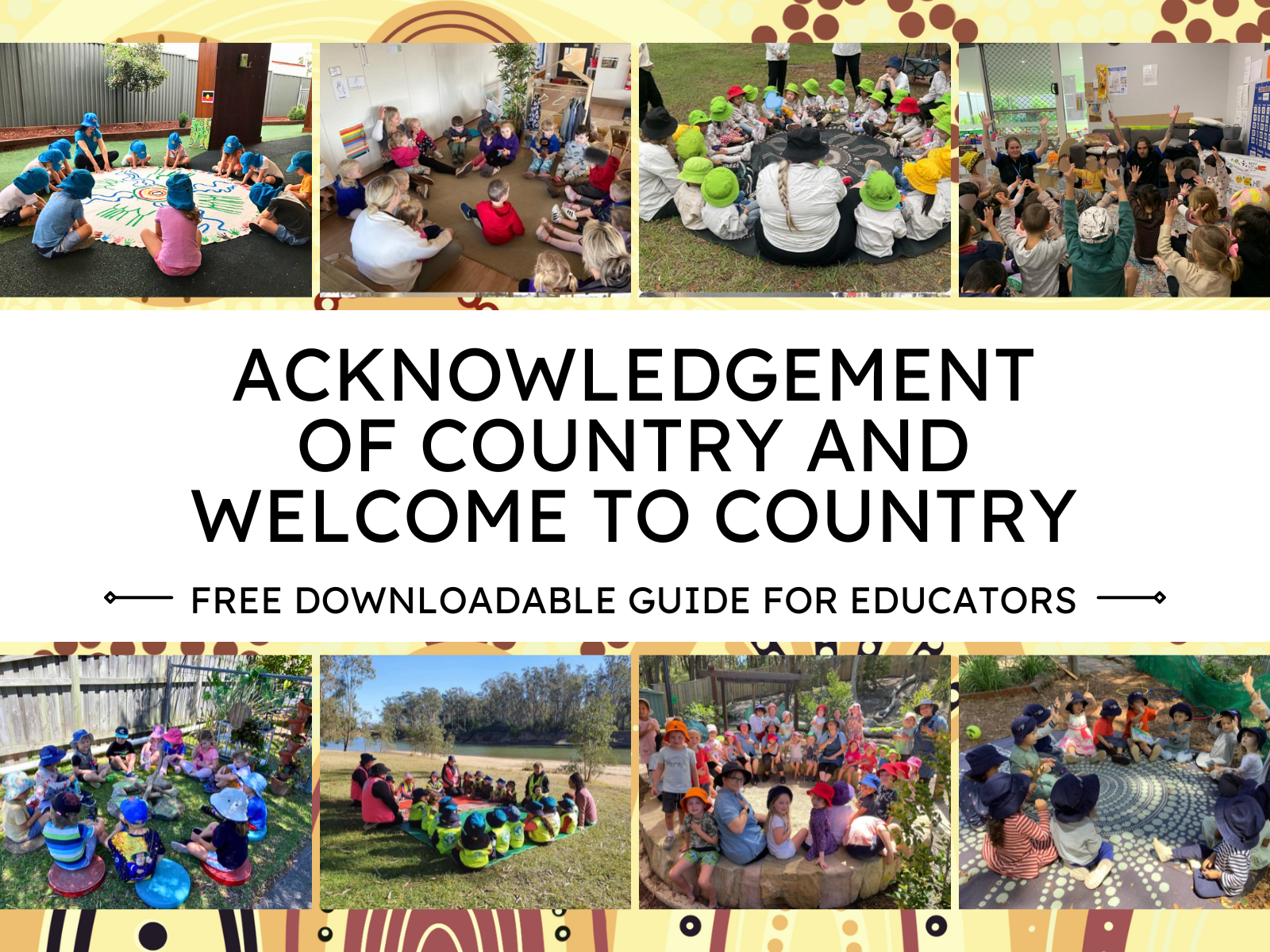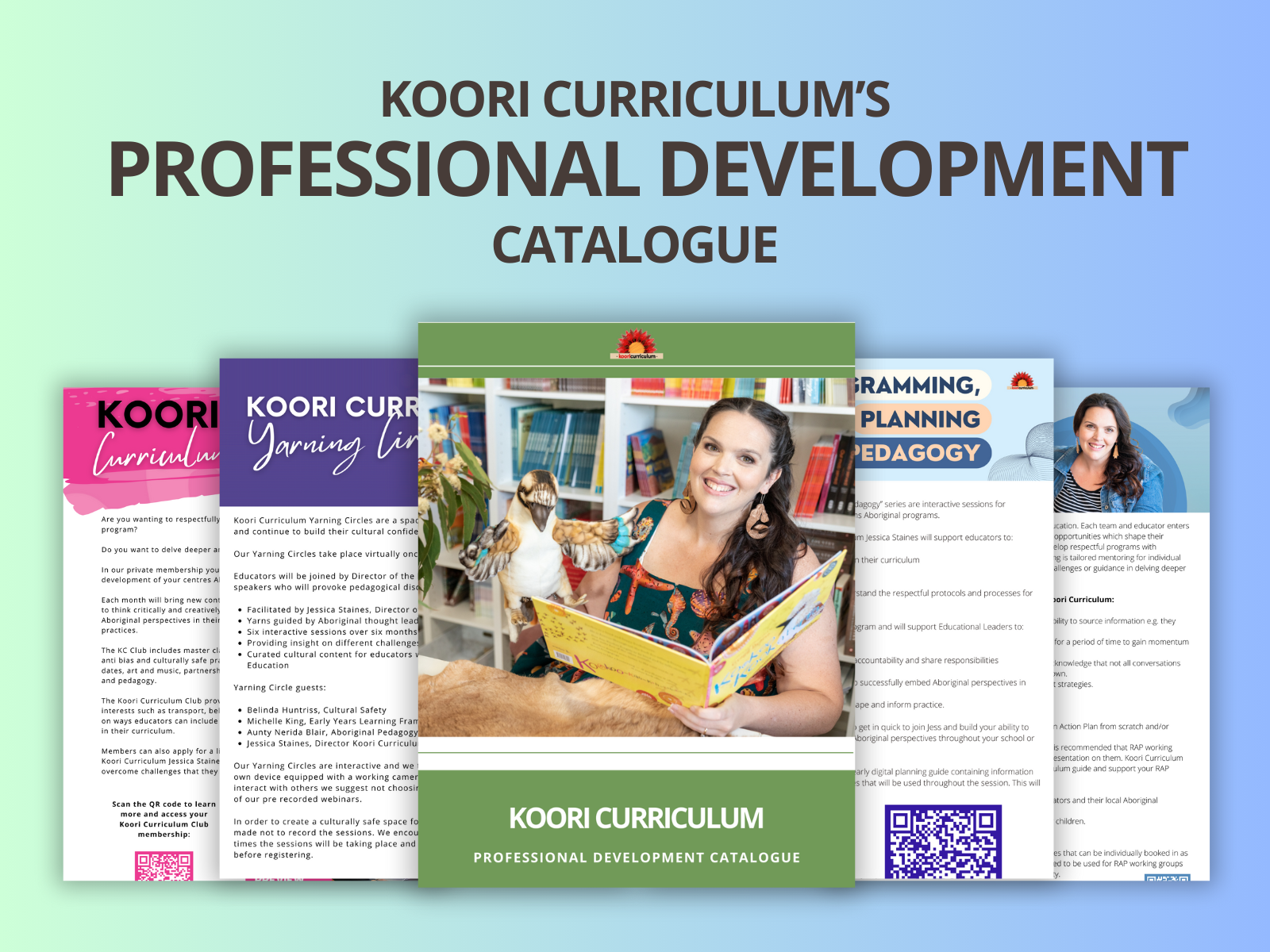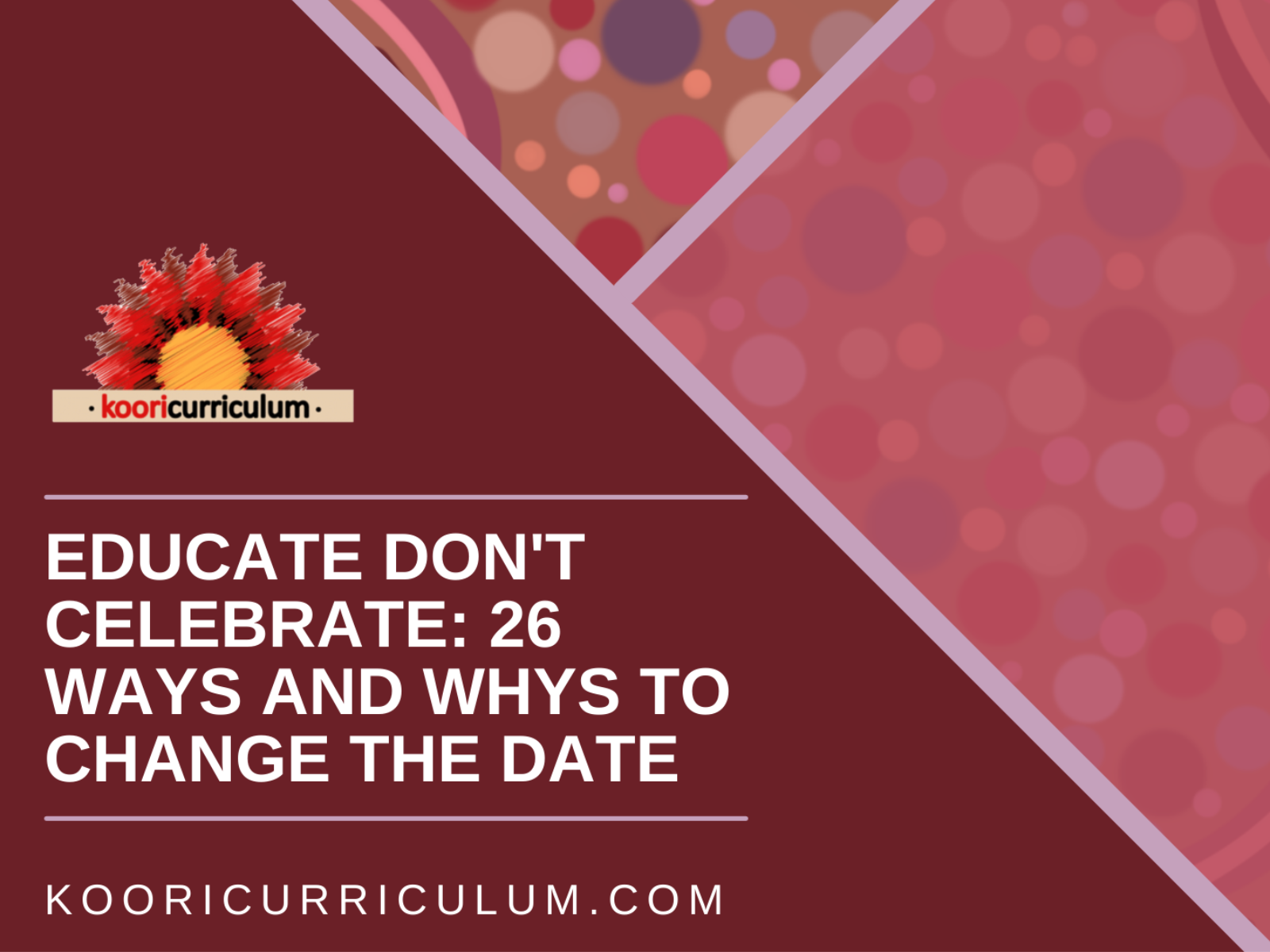1. We are not responsible for the actions of our ancestors
No one is saying that you are.
However, it is about understanding how past acts of injustice continue to oppress and disadvantage Aboriginal people today.
2. Name a Country that wasn’t invaded. Its just the way of the world.
New Zealand wasn’t invaded they were colonised. In NZ they have a treaty and whilst their First Nations people have suffered many similar atrocities; today they have been able to hold their government accountable.
3. Stop dwelling on the past. Australia Day is about celebrating how lucky we are today to live in our Country.
A lot of First Nations people who still continue to suffer the effects of invasion don’t feel as fortunate as you might.
Educate yourself by reading the Closing the Gap Report and develop an understanding of current affairs and issues.
4. Don’t project your personal views and opinions.
We agree, that’s why we have The Code of Ethics. Educators that adhere to this document understand that it’s not our personal values and beliefs that shape curriculum decisions and direction.
The Code of Ethics states that we must “Act in the best interest of all children”. Celebrating Australia on a day of mourning for Frist Nations peoples excludes and marginalises them. In 2018 Early Childhood Australia made a statement in support of Reconciliation Australia that we should not celebrate Australia Day on or around the 26th of January and the date should be moved.
5. Australia Day has always been on the 26th.
No it hasn’t. The 26th has been a day of mourning and protest for Aboriginal peoples since 1938 and it has only been known as National Australia Day since the 90’s.
6. I’m not sorry for something I didn’t do.
Saying sorry isn’t about accepting responsibility, its about having empathy and compassion for the hardships that others have gone and continue to go through.
7. What’s the big deal its just a date.
Privilege is when you don’t consider something to be a problem because it doesn’t effect you personally.
If its not a big deal for you then why not just move it to a day that we can all unify and celebrate together.
8. Changing the date wont change anything.
It will show respect to First Nations peoples who see the day as a time of mourning.
Looking for more resources?
Challenging the Culture of Celebrations Webinar
Australia Day, ANZAC Day, Easter, Christmas, are times of the year when educators can feel challenged about the very nature of the event they are celebrating.
Let Koori Curriculum assist in your planning stages, giving you strategies to guide decision making as you look at the year ahead.
Join us for this webinar where we discuss:
- Resolving feelings when our professional and personal philosophy surrounding celebrations clash.
- Consulting the code of ethics as part of the decision making process to ensure we are acting in the best interests of all children all the time.
- What do we include and what do we exclude? Who do we include and who do we exclude?
- How to best manage change of centre celebration culture for families.
- Defining and differentiating equality and equity to ensure all children have the capacity and support to thrive.
Australia Day by Stan Grant
As uncomfortable as it is, we need to reckon with our history. On January 26, no Australian can really look away. There are the hard questions we ask of ourselves on Australia Day.
Since publishing his critically acclaimed, Walkley Award-winning, bestselling memoir
Talking to My Country in early 2016, Stan Grant has been crossing the country, talking to huge crowds everywhere about how racism is at the heart of our history and the Australian dream. But Stan knows this is not where the story ends.
In this book,
Australia Day, his long-awaited follow up to
Talking to My Country, Stan talks about reconciliation and the indigenous struggle for belonging and identity in Australia, and about what it means to be Australian. A sad, wise, beautiful, reflective and troubled book,
Australia Day asks the questions that have to be asked, that no else seems to be asking. Who are we? What is our country? How do we move forward from here?






